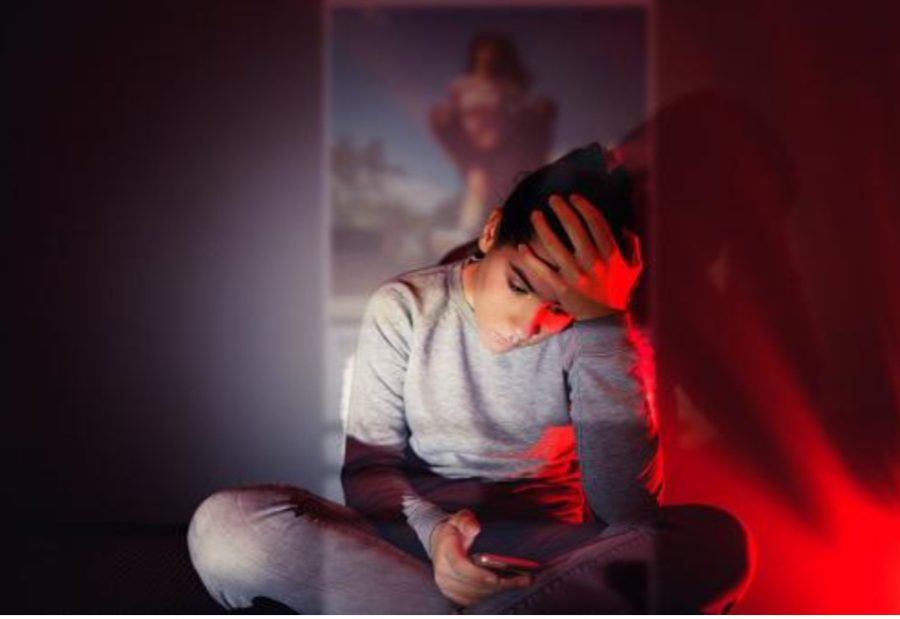Social Media’s Effect on Body Image
Teens’ constant use of social media causes them to feel depressed. These negative influences could lead to long term mental health problems.
Scrolling, swiping, tapping, minutes go by then, hours, and days, drowning in pictures and videos of what you’re supposed to look like, act like, who you’re supposed to be.
Social media is beginning to take over the world. It is defining trends, social norms, and beauty standards through numerous posts and videos across all platforms. These trends capitalize on unrealistic beauty standards and expectations which result in a direct correlation with increased negative effects on people’s self image.
Constant exposure to trends that have the key purpose of comparing others physical features, results in many having a negative self image.
TikTok, Instagram, Pinterest, all social media platforms that have been introduced into society after 2010. In the time period after the introduction of social media (2013-2018) eating disorders had risen by 7.8%.
In the time period before social media, 2000-2006, eating disorders had increased by a significantly less amount, 3.5%, according to the National Journal of Clinical Nutrition.
This extreme increase in those suffering from eating disorders are clearly caused by the introduction of social media, as rates have more than doubled.
To further examine this rising societal issue, one doctor decided to conduct a study on the correspondence between use of social media and eating disorders.
Dr. Simon M. Wilkes of Flinders University found that in his study “51.7% of girls and 45.0% of boys,” suffered from an eating disorder.
To continue the association, Wilkes found that “75.4% of girls and 69.9% of boys had at least one social media account.”
Due to many being exposed to unhealthy trends on social media, users are being surrounded by images and videos which depict ideal beauty standards. This results in the connection between excessive use of social media, and more users having a negative body image. Which in worse cases can result in more people suffering from eating disorders.
Many common Tik Tok trends are causing people to compare physical appearances to others. These trends include having a “ski slope” nose, “american girl doll” teeth, doe shaped eyes and many other specific features that many cannot attain.
The normalization of these unhealthy trends have caused people to compare themselves to others uncontrollably, if these trends on social media continue it will cause irreversible damage to society.
Numerous students at Cathedral Catholic High School have also been affected by the unhealthy trends on social media.
Maria Neves, a sophomore at CCHS, has a close friendship with someone who is negatively affected by social media. Neves says, “she goes to therapy at least 4 times a week because she’s very insecure due to being on Instagram.”
These struggles are apparent throughout the CCHS community, out of four students interviewed all of them are actively on social media and all say social media has affected their self image.
Charli Sutphen, a sophomore at CCHS says that TikTok affects people’s self image the most. Sutphen says, “people look perfect and it’s not real but it makes you think it’s real, so you feel bad about yourself.”
These trends are affecting people all over the world, even down to the CCHS community. If society doesn’t begin to create change and put a stop to unhealthy internet trends, there will be irreversible consequences.

Brooke Quirarte is in her senior year at Cathedral Catholic High School and her third year at Dons Press. Brooke was the head of Social Media her sophomore...





















































